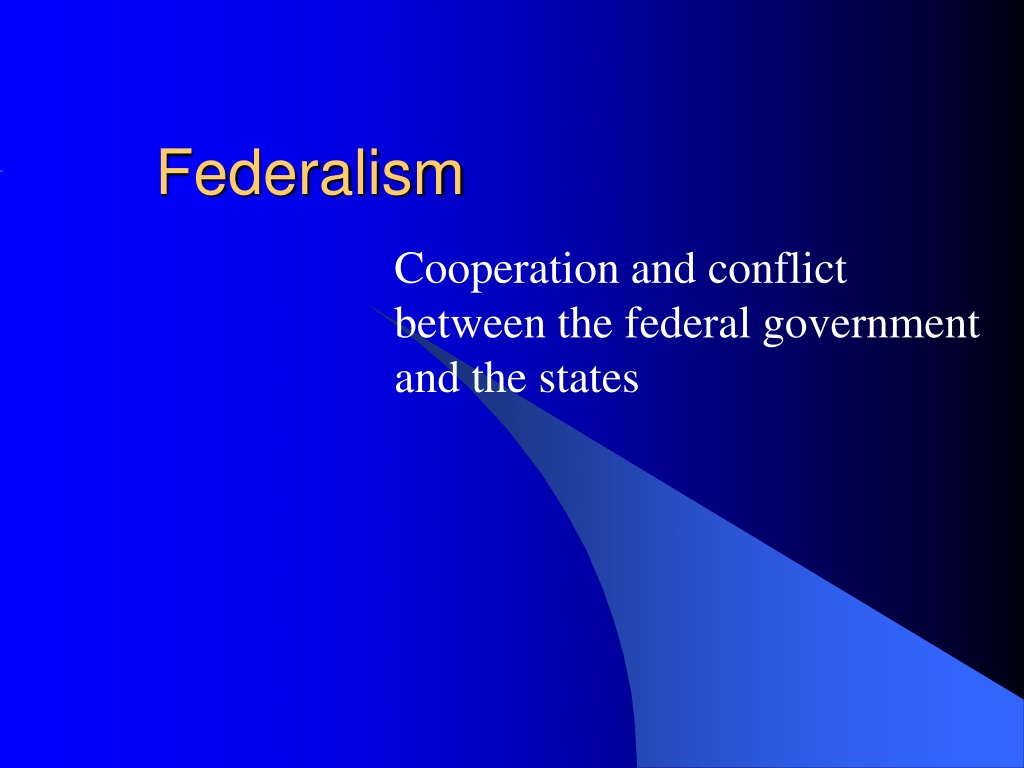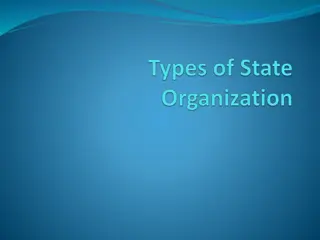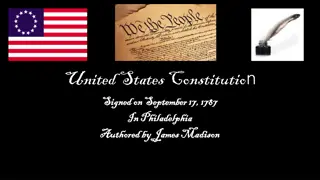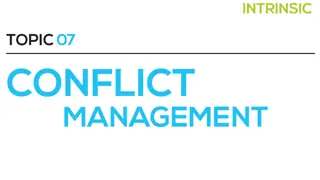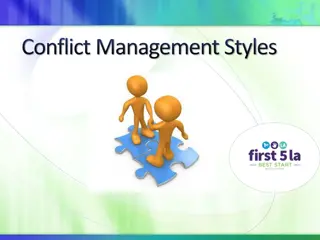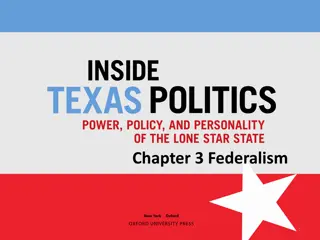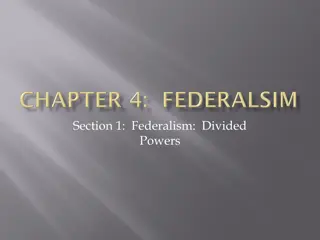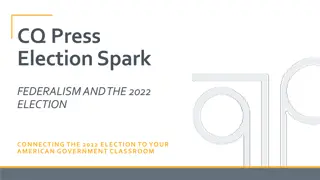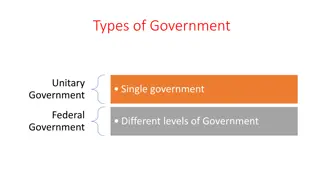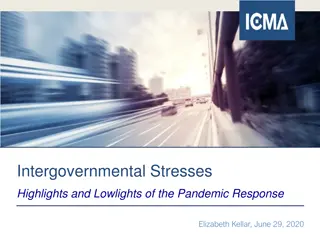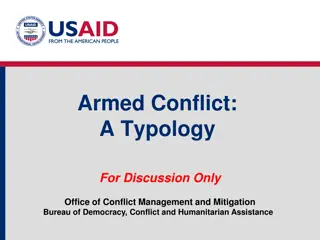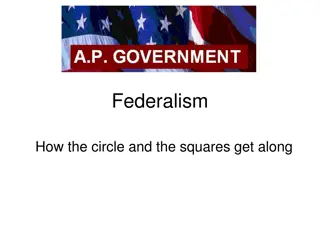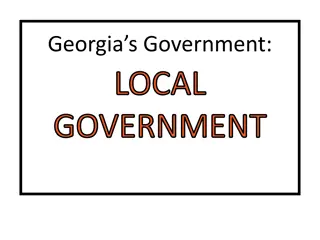Understanding Federalism: Cooperation and Conflict Between Governments
Federalism entails the division and sharing of powers between national and state governments, aiming for cooperative problem-solving. James Madison highlighted the need for checks and balances to control government abuse. The Constitution delegates specific powers to the national government while also outlining limits to its authority. State governments possess powers such as conducting elections and regulating intrastate commerce.
Download Presentation

Please find below an Image/Link to download the presentation.
The content on the website is provided AS IS for your information and personal use only. It may not be sold, licensed, or shared on other websites without obtaining consent from the author. Download presentation by click this link. If you encounter any issues during the download, it is possible that the publisher has removed the file from their server.
E N D
Presentation Transcript
Federalism Cooperation and conflict between the federal government and the states
Balance of Power ! Ambition must be made to counteract ambition. The interest of the man must be connected with the constitutional rights of the place. It may be a reflection on human nature, that such devices should be necessary to control the abuses of government. But what is government itself but the greatest of all reflection on human nature? If men were angels, no government would be necessary. If angels were to govern men, neither external nor internal controls on government would be necessary. In framing a government, which is to be administered by men over men, the greatest difficulty lies in this: You must first enable the government to control the governed; and in the next place, oblige it to control itself. James Madison, Federalist 51
Definition of federalism The division and sharing of constitutionally assigned or implied powers between the national and state governments. The idea that the national, state, and local governments are interacting agents, jointly working to solve common problems rather than conflicting with conflicting results.
Article I, Section 8 (Delegated powers) Powers of national government: Declare war and engage in war Print and coin money Maintain an army, navy and air force. Regulate interstate trade and foreign commerce Set rules of immigration Admit new states Negotiate treaties with foreign countries Set up a post office Article I, Section 8, #18 (Necessary and proper Clause)
Limits on the national government (Article I, section 9) The national government may not: Ban the slave trade before 1808 Suspend habeas corpus, except in emergencies Pass expost facto laws Pass bill of attainder Tax anything exported from a state Take money from the treasury without an appropriation law Grant titles of nobility Punish a descendant of a person convicted of treason Require public officials to hold any particular religious belief
Powers of state governments Conduct elections Govern marriage laws Regulate intrastate commerce Establish and maintain schools Determine the qualifications of the voters Maintain the state militia Most criminal codes
Powers forbidden to the states (Article 1, section 10) Enter into treaties Coin money Grants titles of nobility Lay duties on imports or exports without the consent of congress. Keep a military during peacetime without the consent of congress
Advantages of Federalism Promotes local control and involvement Provides for greater opportunity for political parties Additional power is delegated to the states Encourages diversity among the states
Disadvantages of Federalism State or local control can obstruct the process or progress Wasteful duplication of programs and manpower Difficulty in coordinating and implementing programs Extra administrative costs Supremacy clause (Article VI, Section 2)
